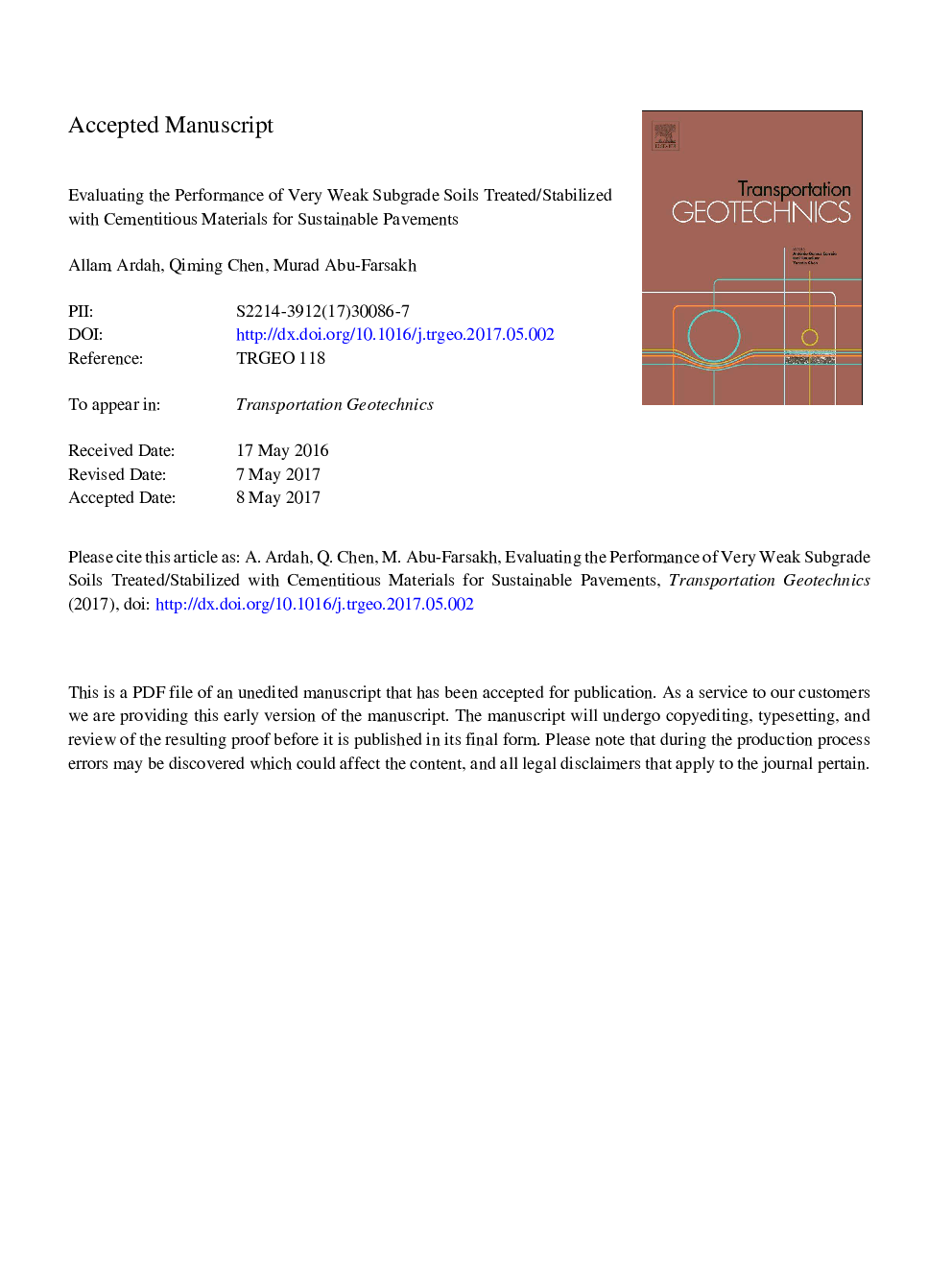| Article ID | Journal | Published Year | Pages | File Type |
|---|---|---|---|---|
| 4928786 | Transportation Geotechnics | 2017 | 40 Pages |
Abstract
This paper presents the results of laboratory tests that were conducted to determine the proper treatment/stabilization recipe of very weak subgrade soils at high moisture contents, and to evaluate the corresponding performance-related properties [e.g., the resilient modulus and permanent deformation] for use in the design of sustainable pavement structures. Four different subgrade soil types of different plasticity indices were considered in this study. Three different moisture contents were selected at the wet-side of optimum that correspond to a raw soil strength value of 172Â kPa (25 psi) or less. All the soils were treated with different combinations of class C fly ash (or Portland cement type I) and hydrated lime to achieve a 7-day target strength values of 345Â kPa (50 psi) to create a working platform and 690Â kPa (100 psi) to stabilize the subgrade for subbase application. Repeated load triaxial (RLT) tests were performed on laboratory molded specimens to evaluate their resilient modulus and permanent deformation behavior under cyclic loading. The AASHTO T-307 procedure was followed in this study to conduct the resilient modulus tests. A good correlation was observed between the water/additive ratio and the resilient modulus/permanent deformation, such that the soil specimens prepared at low water/additive ratio showed better performance than those prepared at high water/additive ratio. The results of laboratory tests showed that the use of direct correlation between unconfined compressive strength (UCS) and resilient modulus for cementitiously treated/stabilized soils can be misleading.
Related Topics
Physical Sciences and Engineering
Earth and Planetary Sciences
Geotechnical Engineering and Engineering Geology
Authors
Allam Ardah, Qiming Chen, Murad Abu-Farsakh,
